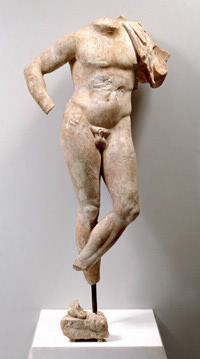Here’s the quote. This is from Stranger in the Village, the closing essay in James Baldwin’s Notes of a Native Son (1955). Baldwin has been discussing the time that he spent writing in a tiny Swiss town, which he was the first Black person ever to visit, and thence the difference in the race question in Europe and America.
When one considers the history of the Negro in America it is of the greatest importance to recognize that the moral beliefs of a person, or a people, are never really as tenuous as life–which is not moral–very often causes them to appear; these create for them a frame of reference and a necessary hope, the hope being that when life has done its worst they will be enabled to rise above themselves and triumph over life. Life would scarcely be bearable if this hope did not exist. Again, even when the worst has been said, to betray a belief is not by any means to have put oneself beyond its power; the betrayal of a belief is not the same thing as ceasing to believe. If this were not so there would be no moral standards in the world at all. Yet one must also recognize that morality is based on ideas and that all ideas are dangerous–dangerous because ideas can only lead to action and where the action leads no man can say. And dangerous in this respect: that confronted with the impossibility of remaining faithful to one’s beliefs, and the equal impossibility of becoming free of them, one can be driven to the most inhuman excesses. The ideas on which American beliefs are based are not, though Americans often seem to think so, ideas which originated in America. They came out of Europe. And the establishment of democracy on the American continent was scarcely as radical a break with the past as was the necessity, which Americans faced, of broadening this concept to include black men.
This was, literally, a hard necessity. It was impossible, for one thing, for Americans to abandon their beliefs, not only because these beliefs alone seemed able to justify the sacrifices they had endured and the blood they had spilled, but also because these beliefs afforded them their only bulwark against a moral chaos as absolute as the physical chaos of the continent in which Americans found themselves, these beliefs threatened an idea which, whether or not one likes to think so, is the very warp and woof of the heritage of the West, the idea of white supremacy.
Americans have made themselves notorious by the shrillness and the brutality with which they have insisted on this idea, but they did not invent it; and it has escaped the world’s notice that those very excesses of which Americans have been guilty imply a certain, unprecedented uneasiness over the idea’s life and power, if not, indeed, the idea’s validity. The idea of white supremacy rests simply on the fact that white men are the creators of civilization (the present civilization, which is the only one that matters; all previous civilizations are simply contributions
to our own) and are therefore civilization’s guardians and defenders. Thus it was impossible for Americans to accept the black man as one o themselves, for to do so was to jeopardize their status as white men. But not so to accept him was to deny his human reality, his human weight and complexity, and the strain of denying the overwhelmingly undeniable forced Americans into rationalizations so fantastic that they approached the pathological.
At the root of the American Negro problem is the necessity of the American white man to find a way of living with the Negro in order to be able to live with himself. And the history of this problem can be reduced to the means used by Americans–lynch law and law, segregation and legal acceptance, terrorization and concession–either to come to terms with this necessity, or to find a way around it, or (most usually) to find a way of doing both these things at once. The resulting spectacle, at once foolish and dreadful, led someone to make the quite accurate observation that the Negro-in-America is a form of insanity which overtakes white men.
In this long battle, a battle by no means finished, the unforseeable effects of which will be felt by many future generations, the white man’s motive was the protection of his identity; the black man was motivated by the need to establish an identity. And despite the terrorization which the Negro in America endured and endures sporadically until today, despite the cruel and totally inescapable ambivalence of his status in his country, the battle for his identity has long ago been won. He is not a visitor to the West, but a citizen there, an American; as American as the Americans who despise him, the Americans who fear him, the Americans who love him–the Americans who became less than themselves, or rose to be greater than themselves by virtue of the fact that the challenge he represented was inescapable. He is perhaps the only black man in the world whose relationship to white men is more terrible, more subtle, and more meaningful than the relationship of bitter possessed to uncertain possessor. His survival depended, and his development depends, on his ability to turn his peculiar status in the Western world to his own advantage and, it may be, to the very great advantage of that world. It remains for him to fashion out of his experience that which will give him sustenance, and a voice.
The cathedral at Chartres, I have said, says something to the people of this village which it cannot say to me; but it is important to understand that, this cathedral says something to me which it cannot say to them. Perhaps they are struck by the power of the spires, the glory of the windows; but they have known God, after all, longer than I have known him, and in a different way, and I am terrified by the slippery bottomless well to be found in the crypt, down which heretics were hurled to death, and by the obscene, inescapable gargoyles jutting out of the stone and seeming to say that God and the devil can never be divorced. I doubt that the villagers think of the devil when they face a cathedral because they have never been identified with the devil. But I must accept the status which myth, if nothing else, gives me in the West before I can hope to change the myth.
Yet, if the American Negro has arrived at his identity by virtue of the absoluteness of his estrangement from his past, American white men still nourish the illusion that there is some means of recovering the European innocence, of returning to a state in which black men do not exist. This is one of the greatest errors Americans can make. The identity they fought so hard to protect has, by virtue of that battle, undergone a change: Americans are as unlike any other white people in the world as it is possible to be. I do not think, for example, that it is too much to suggest that the American vision of the world-which allows so little reality, generally speaking, for any of the darker forces in human life, which tends until today to paint moral issues in glaring black and white-owes a great deal to the battle waged by Americans to maintain between themselves and black men a human separation which could not be bridged. It is only now beginning to be borne in on us-very faintly, it must be admitted, very slowly, and very much against our will–that this vision of the world is dangerously inaccurate, and perfectly useless. For it protects our moral high-mindedness at the terrible expense of weakening our grasp of reality. People who shut their eyes to reality simply invite their own destruction, and anyone who insists on remaining in a state of innocence long after that innocence is dead turns himself into a monster.
The time has come to realize that the interracial drama acted out on the American continent has not only created a new black man, it has created a new white man, too. No road whatever will lead Americans back to the simplicity of this European village where white men still have the luxury of looking on me as a stranger. I am not, really, a stranger any longer for any American alive. One of the things that distinguishes Americans from other people is that no other people has ever been so deeply involved in the lives of black men, and vice versa. This fact faced, with all its implications, it can be seen that the history of the American Negro problem is not merely shameful, it is also something of an achievement. For even when the worst has been said, it must also be added that the perpetual challenge posed by this problem was always, somehow, perpetually met. It is precisely this black-white experience which may prove of indispensable value to us in the world we face today. This world is white no longer, and it will never be white again.
–James Baldwin, Stranger in the Village (1953), in Notes of a Native Son (1955), pp. 171-175




